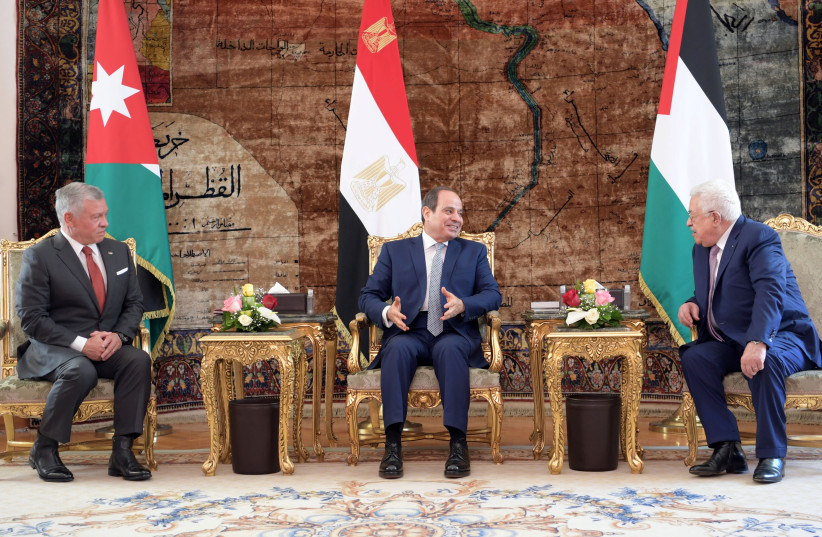Egyptian President Abdel Fattah al-Sisi expressed hopes for deeper US counter-terrorism ties during talks with a top American general on Monday, following a deadly weekend attack by militants in the Sinai peninsula, a US military official said on Monday.
The attack was claimed by Islamic State and killed 11 Egyptian troops. Militants descended on a checkpoint at a water pumping station, striking with an explosive-rigged vehicle and firing heavy weapons from pick-up trucks, Egyptian security sources said.
It was one of the most deadly attacks in recent years in the northern Sinai.
US Army General Michael "Erik" Kurilla, who oversees US forces in the Middle East, said following Monday's talks in Cairo that the attack underscored the persistent threat from extremists.
"I offered my condolences and my view of the ISIS threat," said Kurilla, head of US Central Command.

Sisi's office said in a statement following his meeting with Kurilla that terrorism was the foremost challenge to Egypt's security and stability and required "collective efforts to combat it."
Since 2018, the Egyptian military has expanded its control over populated coastal areas of Northern Sinai between the Gaza Strip in the east and the Suez Canal in the west, allowing for a return of some civilian activity and the development of some infrastructure.
However, sporadic attacks have continued with militants seeking refuge in desert expanses south of the coast and using different tactics such as sniping or planting explosives.
The latest attack took place on Saturday morning on the road leading east from the Suez Canal to Hasanah in the center of Northern Sinai, Egyptian security sources said.
A senior US military official, speaking on condition of anonymity, said Sisi and other Egyptian officials sought a deeper counter-terrorism relationship in meetings with Kurilla on Monday.
The US military official added that Kurilla offered to send US Rear Admiral Mitchell Bradley, who leads US special operations forces in the Middle East, to Egypt to offer "guidance and additional assistance."
BIDEN SLASHES MILITARY AID
Kurilla's visit, his first since taking the helm of US Central Command in April, comes less than four months since President Joe Biden's administration announced it would cut $130 million in military aid to Egypt over human rights concerns.
The rare US censure of a geostrategic ally that controls the Suez Canal followed Egypt's failure to address specific human rights-related conditions, which have never been publicly detailed by Washington.
Activists have said those US conditions included the release of people seen as political prisoners.
US officials have said the American relationship with Egypt is complex. The most-populous Arab country is a vital ally and key voice in the Arab world. US military officials have long stressed Egypt's role expediting the passage of US warships through the Suez Canal and granting overflight for American military aircraft.
Kurilla told reporters traveling with him that the US-Egypt relationship was critical and that his visit gave him "a new appreciation for Egypt's prominent role in the Middle East."
"This strategic partnership is important to me, the United States, and CENTCOM," he said, using an acronym for Central Command.
Despite deep ties to the US military, Egypt has moved to diversify its sources of arms since then-US President Barack Obama in 2013 froze delivery of some military aid to Egypt after Mursi's overthrow.
Egypt's imports of arms from Russia, France, Germany and Italy have surged, according to data from the Stockholm International Peace Research Institute.
Still, Kurilla's predecessor in the post, Frank McKenzie, a now retired four-star Marine general, told Congress in March that he believed the United States would provide Egypt with F-15 aircraft, manufactured by Boeing BA.N.
That sale has not yet been formally announced.
